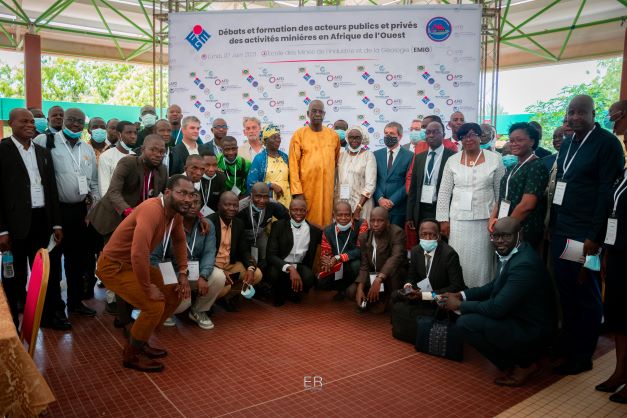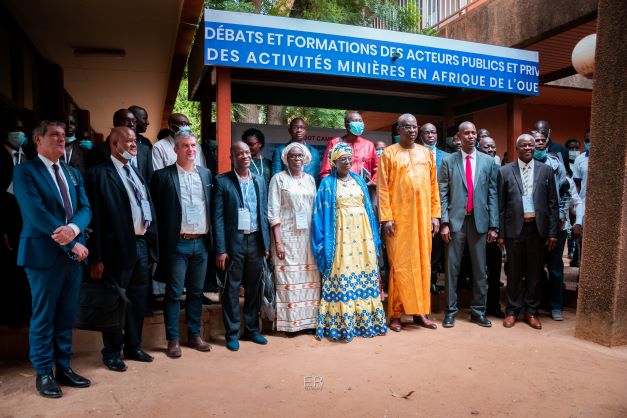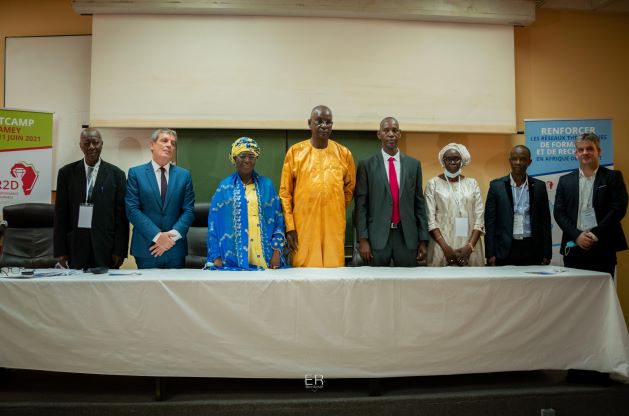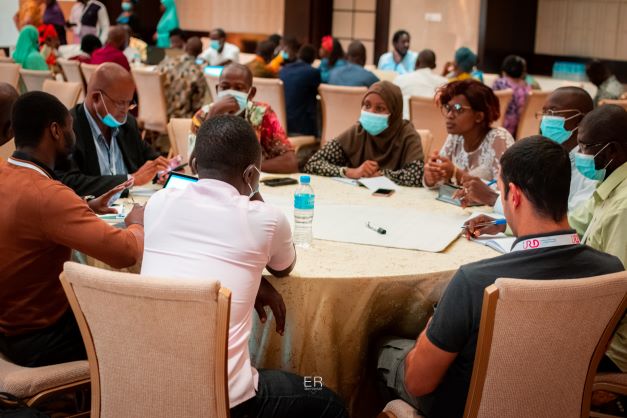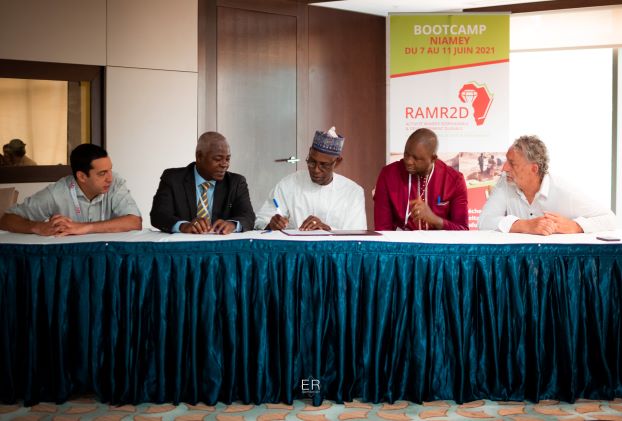September 08, 2021 at IRD headquarters in Marseille
Audience granted by Ms Valérie VERDIER, IRD CEO to the AMR2D and Sustainable Water Management networks on the sidelines of the IUCN summit held in Marseille from September 03 to 11, 2021.
The CEO thanked all the centers for their excellent work. She also congratulated the ACE Partner team on the excellent thematic networking of the various African centers of excellence.
Multidisciplinary, interdisciplinary and transdisciplinary scientific research is to be promoted with partners in the South. The issue of biodiversity in the South is a major priority for IRD governance.
At the end of the session, the CEO presented kits on IRD's scientific priorities to the coordinators of the AMR2D and Sustainable Water Management networks.
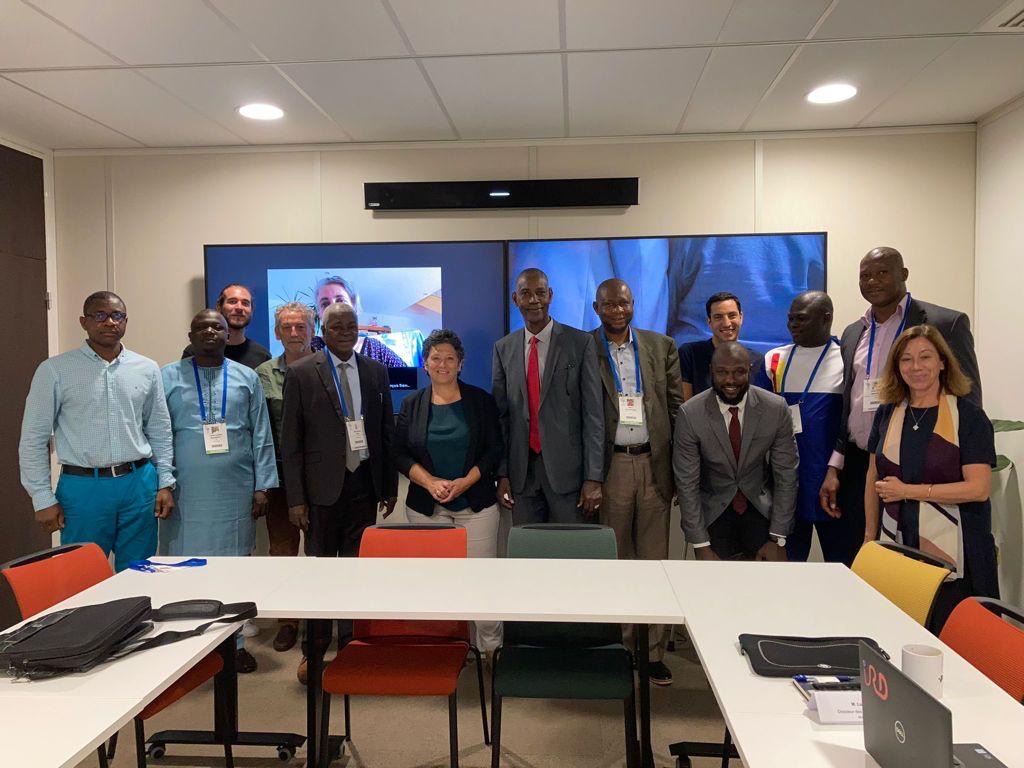
Present in Marseille from September 03 to 11, 2021 as part of the IUCN Biodiversity Summit, members of the Responsible Mining and Sustainable Development network discussed IUCN motion 67 on reducing the impact of mining on biodiversity.
Having communicated its comments to IUCN members before and during the summit, the vote on this motion was the objective of the network members' presence in Marseille during this week dedicated to Biodiversity.
This reflection can be summed up in five (5) key points:
- Building bridges for multi-stakeholder dialogue
We therefore propose the following lines of thought:
- Set up forums for dialogue between public decision-makers, civil society, operators, academic and development players, to share best practices and strengthen coordination between initiatives.
- Create an environment conducive to sincere and transparent exchange within the stakeholder community.
- Create local, transdisciplinary, multi-sector pacts of trust around mining projects in the pipeline, in operation, or abandoned (orphan mines).
- Understand the issue of mining as a whole through an interdisciplinary, inclusive, inter-ODD and co-developed approach:
We propose the following lines of thought:
- Promote and fund interdisciplinary research (engineering and physical sciences, natural sciences, humanities and social sciences), and the creation of knowledge around the complex issue of mining in Africa and beyond.
- Raising awareness among all the players involved by promoting training through research
- Encourage the participation of the populations concerned and the development of learning communities through the development of dedicated "living labs".
- Create or strengthen local, regional and international research networks in this field
- Promote local expertise through training and inter- and trans-disciplinary action-research.
- Identify and share innovative solutions for a community of practitioners:
We propose the following lines of thought:
- Develop local content in national program funding.
- Support the transfer and appropriation of technologies to optimize sustainable value-adding processes via networks of North/South players, through the creation of dedicated structured systems (innovation committees in mining villages and towns, technology transfer acceleration companies (SATT), incubators, technopoles, R&D departments within companies (depending on the appropriate structural scale).
- Rethink the regulatory framework for mining via this multi-stakeholder approach and within a regional logic:
We propose the following lines of thought:
- Share national regulatory best practices via regional bodies.
- Encourage transparency and publication of public licensing data.
- Encourage implementation of and compliance with regional environmental regulations
- Develop regulations to safeguard and protect ecosystems threatened with disfunction or extinction in the various regions covered by the licenses.
- Encourage regulations that allow industrial and artisanal mines to coexist
- Enhance and strengthen regulations that place particular emphasis on the know-how of traditional communities in terms of biodiversity enhancement in the context of mining activities.
- Formalize and monitor the appropriate indicators for responsible mining:
We propose the following lines of thought:
- Publicly share geographical, social and economic data on mining.
- Use the SDG framework and indicators to monitor interactions between mining and major development issues.
- Promote the transparency of impact studies, solutions for reducing negative externalities, and open science research results.
- Encourage the creation of local or regional mining observatories.
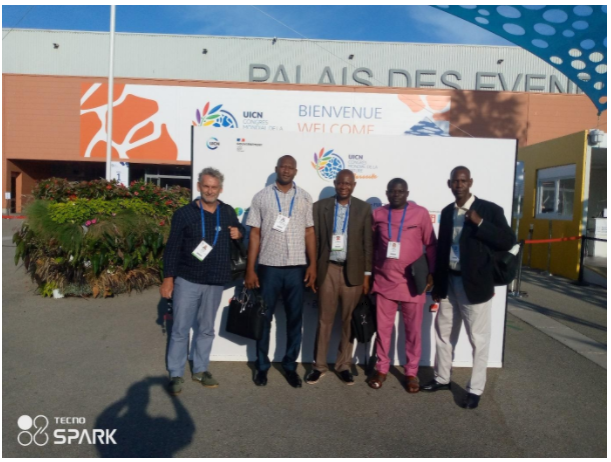
Niamey, Niger - June 7 to 11, 2021
Artisanal and semi-industrial gold mining addresses a number of development issues: the fight against poverty - MDG 1, decent work and economic growth - MDG 8, responsible production and consumption - MDG 12, protection of terrestrial flora and fauna - MDG 15, etc. Building viable solutions to the issues raised calls for new paradigms based on multi-stakeholder and interdisciplinary dialogue.
To this end, academic, public and private players and members of civil society met for the first time on this scale from across West Africa in Niamey from June 7 to 11, 2021. The event brought together nearly 200 international academic and private players, and built bridges through numerous meetings, workshops, debates and training courses on the theme of "Multi-scale approaches to the impacts of artisanal and industrial gold mining in West Africa: issues, methodology and research prospects".
Participants were able to discuss the issues, methodologies and research prospects for responsible mining and sustainable development, as well as the conditions required to get on the right track.
Over the course of 5 days, these unprecedented exchanges proved highly fruitful. All the players were able to draw up the content of a joint declaration, " The Niamey Declaration of June 11, 2021 for responsible mining and sustainable development ", and to propose more responsible operating and organization methods applicable to pilot sites for artisanal and industrial activities in West Africa.
They jointly declare the need to :
>> Create bridges for a multi-stakeholder dialogue.
>> Understand the issue of artisanal and semi-industrial gold mining in its entirety via an interdisciplinary and co-developed approach.
>> Identify and share innovative solutions for a community of practitioners.
>> Rethink the regulatory framework for artisanal mining via this multi-stakeholder approach and within a regional logic.
>> Formalize and monitor appropriate indicators for responsible mining.
